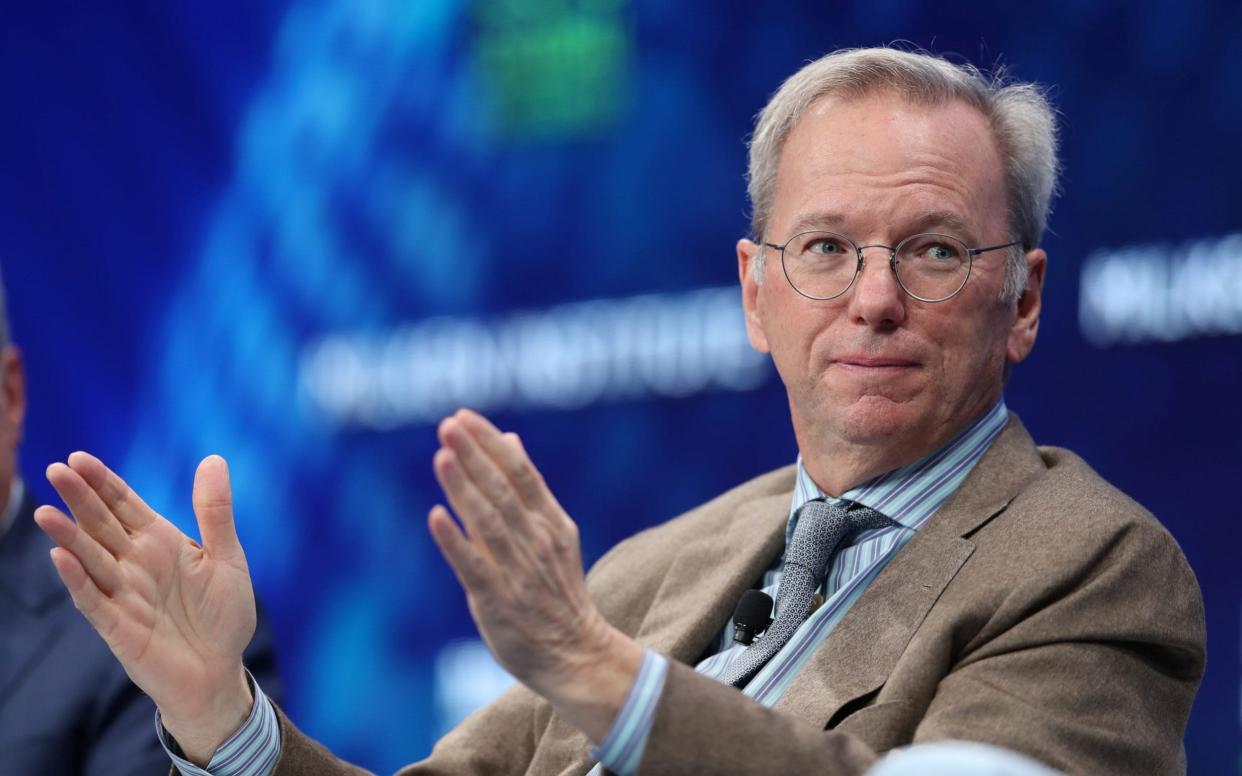Ex-Google boss Eric Schmidt hits back over antitrust case

Eric Schmidt, Google's former chief executive, has lambasted a landmark monopoly case launched this week against the search giant, claiming the move is misguided and clouded by political interests.
“There’s a difference between dominance and excellence,” he said at the Wall Street Journal’s Tech Live conference on Wednesday, adding that the legal challenge is a distraction from more pressing matters facing the US.
The Justice Department filed a lawsuit against Google on Tuesday for allegedly building an illegal monopoly through its search and search advertising platforms.
Officials highlighted how Google has a deal to pay tens of billions of dollars to the likes of Apple and Samsung so that its search engine is used as default on their phones. The lawsuit said this allows Google to crush rivals and hammers choice for its customers.
Eric Schmidt, who spent 19 years at Google after being appointed CEO in 2001, claimed the motivation behind the lawsuit was driven from Republicans that were at the end of a term president whose polling numbers suggested he was “unlikely to be re-elected”.
The 65-year old said that he didn’t believe Google had done anything illegal and that the responsibility had fallen to him to speak out as he was “unfettered by corporate rules.”
“I can say what I actually think,” he said.
Mr Schmidt said the search engine faced “ruthless” competition and cited Microsoft’s search alternative Bing. He also said that he studied the US government’s decade-long case against Microsoft in the hope of avoiding any similar pitfalls.
“We worked really hard to avoid any illegal activity,” he said. “It’s bad public policy to use antitrust to regulate.”
The former Silicon Valley boss also said the “most obvious” area that should be regulated was social networking.
He said the concept of social networks amplified “idiots and crazy people” was not what was originally intended.
Mr Schmidt also told the government to focus on China instead of Google and cited the benefits of Big Tech to the US economy.
When detailing their case against Google, US prosecutors claimed that the company had “foreclosed competition for internet search” and that its competitors had been denied “vital distribution, scale, and product recognition”.
The Department of Justice’s case harks back to its pursuit of Bill Gates’ Microsoft in the 1990s. In its outline, prosecutor called for “structural relief” as a potential remedy for Google’s behaviour, inferring a potential sell-off of parts of its business.
Google said it would aggressively fight the claims, describing the landmark complaint as “dubious” and insisting that its exclusivity deals with manufacturers, telecoms companies and rival web browsers are all a normal part of business.


